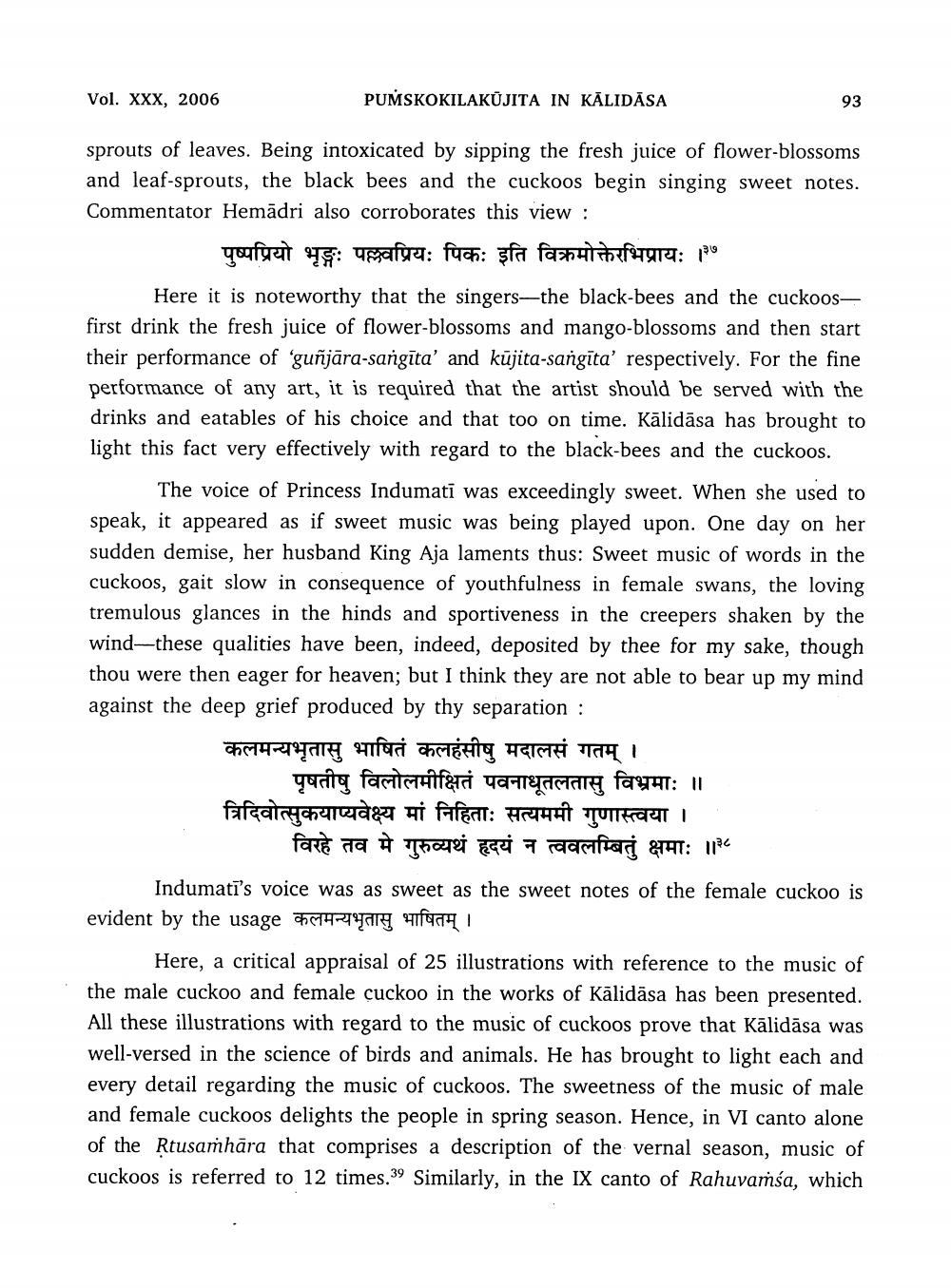________________
Vol. XXX, 2006
PUMSKOKILAKŪJITA IN KĀLIDĀSA
93
sprouts of leaves. Being intoxicated by sipping the fresh juice of flower-blossoms and leaf-sprouts, the black bees and the cuckoos begin singing sweet notes. Commentator Hemādri also corroborates this view :
पुष्पप्रियो भृङ्गः पल्लवप्रियः पिकः इति विक्रमोक्तेरभिप्रायः ॥३७ Here it is noteworthy that the singers—the black-bees and the cuckoosfirst drink the fresh juice of flower-blossoms and mango-blossoms and then start their performance of 'guñjāra-sangīta' and kūjita-sangīta' respectively. For the fine performance of any art, it is required that the artist should be served with the drinks and eatables of his choice and that too on time. Kālidāsa has brought to light this fact very effectively with regard to the black-bees and the cuckoos.
The voice of Princess Indumati was exceedingly sweet. When she used to speak, it appeared as if sweet music was being played upon. One day on her sudden demise, her husband King Aja laments thus: Sweet music of words in the cuckoos, gait slow in consequence of youthfulness in female swans, the loving tremulous glances in the hinds and sportiveness in the creepers shaken by the wind-these qualities have been, indeed, deposited by thee for my sake, though thou were then eager for heaven; but I think they are not able to bear up my mind against the deep grief produced by thy separation :
कलमन्यभृतासु भाषितं कलहंसीषु मदालसं गतम् ।।
पृषतीषु विलोलमीक्षितं पवनाधूतलतासु विभ्रमाः ॥ त्रिदिवोत्सकयाप्यवेक्ष्य मां निहिताः सत्यममी गणास्त्वया ।
विरहे तव मे गुरुव्यथं हृदयं न त्ववलम्बितुं क्षमाः ॥८
Indumati's voice was as sweet as the sweet notes of the female cuckoo is evident by the usage oftyptary focal
Here, a critical appraisal of 25 illustrations with reference to the music of the male cuckoo and female cuckoo in the works of Kālidāsa has been presented. All these illustrations with regard to the music of cuckoos prove that Kālidāsa was well-versed in the science of birds and animals. He has brought to light each and every detail regarding the music of cuckoos. The sweetness of the music of male and female cuckoos delights the people in spring season. Hence, in VI canto alone of the Rtusamhāra that comprises a description of the vernal season, music of cuckoos is referred to 12 times.39 Similarly, in the IX canto of Rahuvamśa, which




